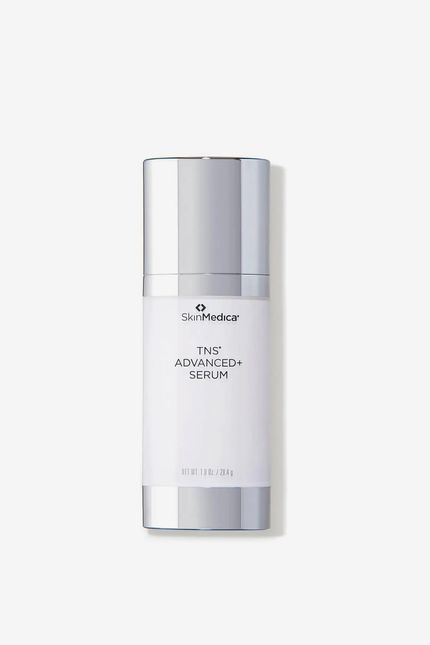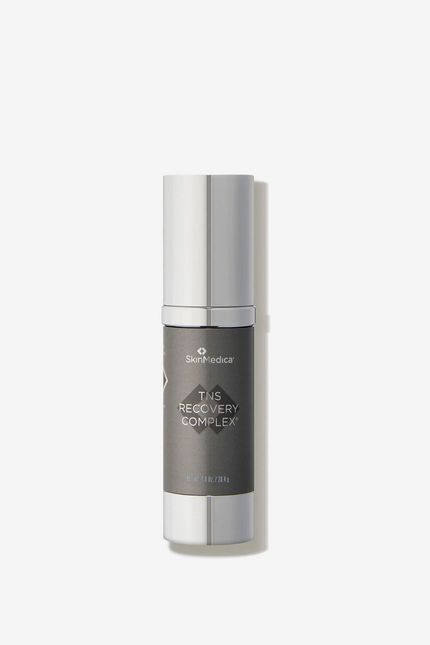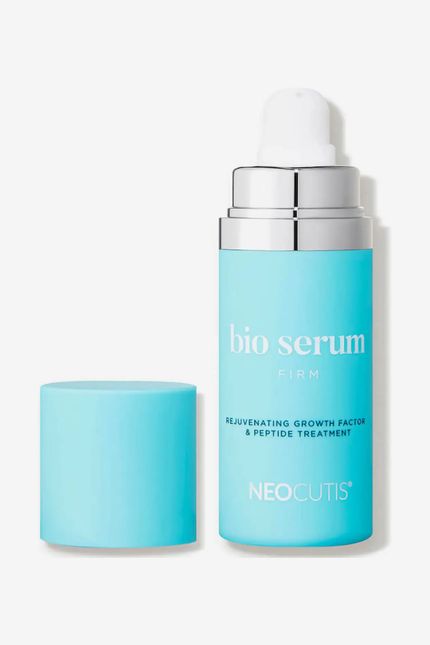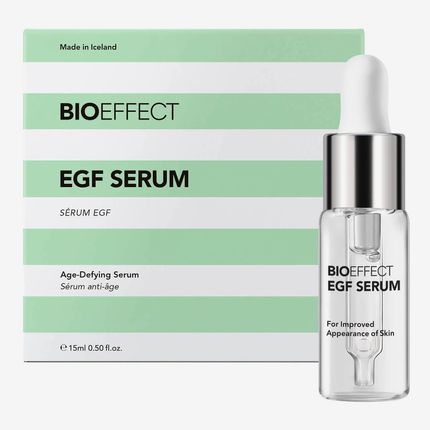[ad_1]

Growing, growing … growing?
Dear Jenn,
What are your thoughts on anti-aging serums with growth factors. Is there a cancer risk? —Anon
Anybody who knows enough about skin care to ask about the potential cancer risk from growth factors has bypassed Skin Care 101 and is deep into the 300 level. So I’ll reward your graduate-level question with a quick answer to start: There is no evidence that applying growth factors in the form of topical cosmetics increases your cancer risk. But I think it’s worth revisiting some undergrad cosmetic chemistry to explain why people might be concerned about using them — and to help you figure out if they’re right for you.
What are growth factors in skin care?
Growth factors are basically proteins in the human body that act as messengers, telling cells to do their thing (whatever that particular thing is). In the past 30 years or so, researchers have developed multiple cosmetic ingredients that work as, or like, growth factors when applied topically. “I compare the solutions that are used to formulate growth-factor skin-care products to soups that have perfectly balanced ingredients — just the right amount of each so that no single ingredient overwhelms the others,” explains board-certified dermatologist Vivian Bucay, M.D. These “soups” are typically listed as human fibroblast conditioned media (HFCM) on product-ingredient lists. There are also other growth factors, such as oligopeptide-1 and oligopeptide-2, that you might see on cosmetic-ingredient lists.
How do growth factors work in skin care?
Theoretically, skin-care products with growth factors will tell the cells in your skin (e.g., fibroblasts) to do more of whatever it is they do (in the case of fibroblasts, pump out collagen to help keep your skin firm and smooth). Bucay says researchers aren’t quite sure how growth factors do this in cosmetics because they’re big molecules that can’t penetrate the deeper layers of skin, where cells like fibroblasts live. But some researchers believe they set off a surface-level chain reaction that delivers the “Act younger!” and “Do better!” messages to the layers below, helping jump-start the rejuvenation process.
Can growth factors cause cancer?
Using growth factors in skin care brings up an interesting point: What if someone applies a product with a growth factor, it tells a rogue cell in your body to do its thing, and that thing happens to be mutant growth in the form of cancer. I get that logic — and so does Bucay. She began looking into skin care with growth factors after she was diagnosed with stage-four melanoma. “I did a deep dive into the medical literature and spoke with numerous scientists,” she says. “It took a couple of years until I was satisfied that products that use a balanced solution of growth factors don’t increase the risk of skin cancer or other cancers.”
Bucay goes on to explain that the cancer concern may stem from the fact that particular growth factors are found in greater levels in people with specific types of cancer. “One example is vascular endothelial growth factor (VEGF), a growth factor found in [some] commercially available topical growth-factor skin care,” says Bucay. “We know that people with melanoma have ten times the circulating levels of VEGF compared to individuals who do not have melanoma.” That does not prove that topically applied VEGF — a single growth factor — causes melanoma. “The reality is that growth-factor skin-care products contain a mixture of growth factors and other compounds secreted by the cells used to produce the product,” Bucay says. “That means that the ratio of growth factors used in these skin-care products mirrors the ratio of growth factors that the cells secrete naturally.” And what about other types of cancer? “The growth factors are very large molecules that do not penetrate through the epidermis. In other words, they are not absorbed into the bloodstream, so there is not a risk of developing other types of cancers,” Bucay says.
Anything else I should know about growth factors?
There are numerous ways to make growth factors for skin care. For example, some types of HFCM are derived from cell lines that were grown in labs (the cell lines are created from different types of human-donated cells, but the proteins they produce no longer have human cells in them). These compounds have been used in skin care for years, and there have not been any safety issues (all of the tissues or cells used to create growth factors are “screened for diseases and examined to rule out abnormalities,” says Bucay). But there’s still an ick factor — and the fact that these ingredients are relatively new to skin care and still being studied. To bypass the human part of the equation, some companies have figured out how to make their growth-factor compounds in the lab using bioengineered plants. The companies making them claim they are just as effective as the human-derived growth factors, “but there are no controlled, head-to-head, double-blinded studies to prove this,” says Bucay. Another possible concern? The ingredients are expensive to produce, so growth-factor serums are usually pretty pricey.
So should I use skin care with growth factors?
I can’t tell you what to do, but if any of the science I’ve laid out gives you pause, there are plenty of other anti-aging skin-care ingredients you can use instead (retinol, for example, also helps to boost collagen production). However, I should tell you that I’ve been using SkinMedica TNS Advanced+ Serum, and its precursor, SkinMedica TNS RecoveryComplex, for more than ten years (both feature a proprietary type of HFCM). After I gave up on prescription and cosmetic retinoids in my early 30s — they’re just too irritating for me — I tried tons of serums, looking for a replacement that would keep my skin as smooth. Many of them were great, but the serums with growth factors seemed to do the most (firmer skin, better tone and texture) with the least irritation. I’ve also dabbled with Neocutis Bio Serum Firm Rejuvenating Growth Factor & Peptide Treatment and tried serums with plant-derived growth factors, such as Bioeffect EGF Plumping and Firming Serum and a discontinued one from DNA EGF Renewal, and had good results with those as well. But that’s just me! If you pass on the whole growth-factor trend, you’re really won’t be missing out. Especially if you wear sunscreen, the absolute best anti-aging product you can buy.
Some favorite products:

SkinMedica TNS Advanced+ Serum
$295 at Dermstore
$295 at Skinstore
$295 at Lovely Skin

SkinMedica TNS Recovery Complex
$230 at Dermstore

Neocutis Bio Serum
$235 at Amazon
$275 at Dermstore

BIOEFFECT EGF Plumping and Firming Serum
$175 at Dermstore
Send your questions to AskABeautyEditor@nymag.com. (By emailing, you agree to the terms here.)
More Beauty Advice
- How to Start Using Self-Tanner
- Do I Need Whole-Body Deodorant?
[ad_2]
Jennifer G. Sullivan , 2024-05-22 20:41:32
Source link



